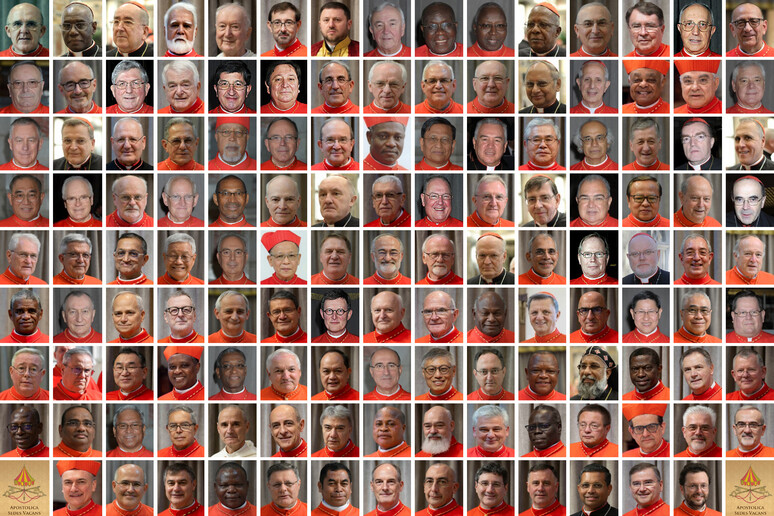Among the possible younger successors
of Pope Francis there is José Tolentino de Mendonca, Portuguese,
a subtle man of letters, and a lover of poetry.
Francis appointed him cardinal in 2019 and in 2022 prefect of
the Dicastery for Culture and Education.
Born in 1965 on the Portuguese island of Madeira, he is the
youngest of five children. He spent the first years of his
childhood in Angola, in various coastal cities, following his
fisherman father.
At the age of nine he left Africa: it was the period in which
Portugal withdrew from its colonies. In 1989 he obtained a
licentiate in theology; a year later he was ordained a priest
and enrolled at the Pontifical Biblical Institute in Rome,
obtaining a licentiate in biblical sciences.
Subsequently (2011-2012) he carried out research at the Strauss
Institute for the Advanced Study of Law & Justice in New York;
he directed the theological studies magazine "Didaskalia" and
became rector of the chapel of Nossa Senhora da Bonança.
Appointed in 2011 as a Consultant to the Pontifical Council for
Culture, he also worked as a guest lecturer in Brazil at the
Catholic universities of Pernambuco and Rio de Janeiro and at
the Jesuit Faculty of Philosophy and Theology in Belo Horizonte.
He has numerous publications to his credit: volumes and articles
in the theological and exegetical fields but also poetic works.
Considered an expert on the relationship between literature and
theology, in 2014 he represented Portugal on World Poetry Day
and for years he has edited a weekly column in the newspaper
"Expresso" entitled "Che cosa sono le nuvole".
A magazine in which in recent years he has been the protagonist
of an interesting exchange between opposites, with the atheist
writer, Nobel Prize winner for literature, José Saramago.
In 2018, Francis made him archbishop and appointed him archivist
and librarian of the Holy Roman Church, a position he held until
2022, when he became prefect of the Dicastery for Culture and
Education.
In 2020, he won the European "Helena Vaz da Silva" award for his
ability to promote beauty and poetry as part of the intangible
cultural heritage of Europe and the world.
He was recognized for his ability to inspire and engage beyond
the confines of the Church, to engage in dialogue by drawing on
the language of literature and philosophy. Being born on an
island allowed him to develop a very strong relationship with
the sea, which recurs in many of his writings.
ALL RIGHTS RESERVED © Copyright ANSA











